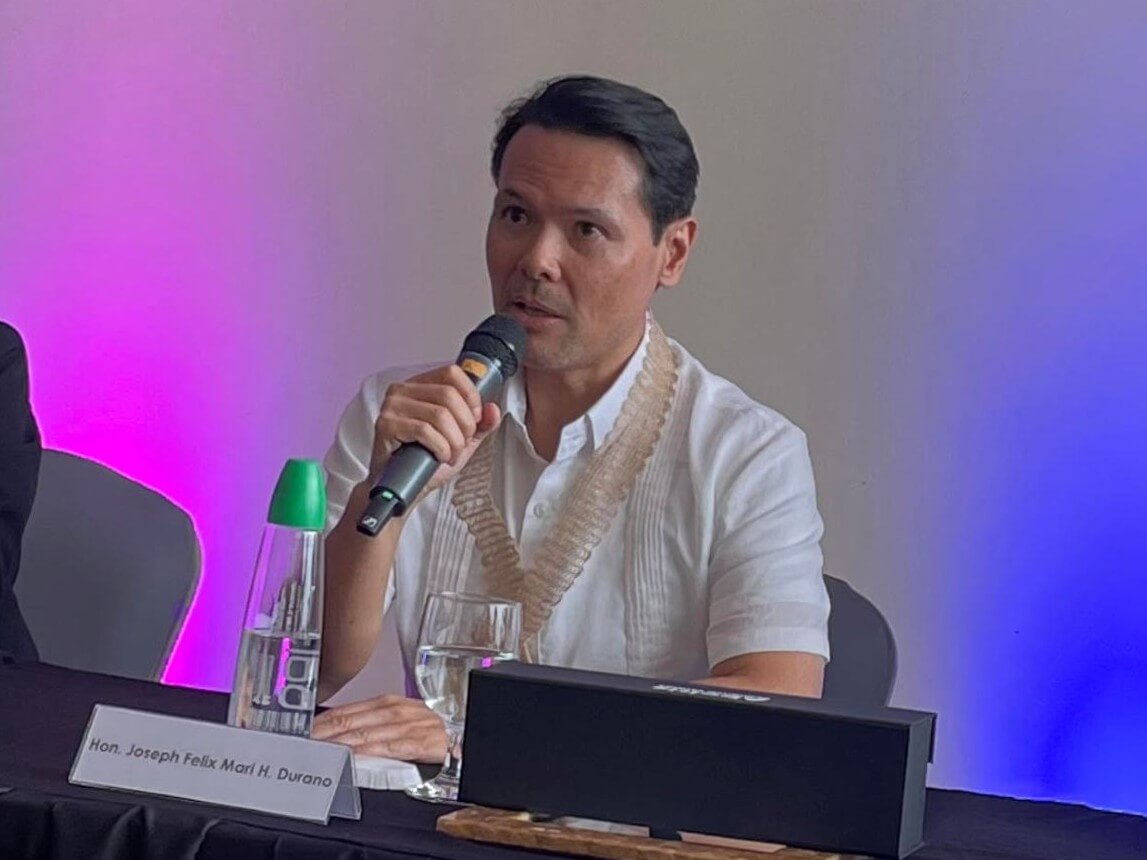

Provincial Administrator Joseph Felix Mari Durano said the province is meeting with the Philippine Reclamation Authority (PRA) and several developers to determine the steps needed to move forward, after Provincial Ordinance No. 2022-09, which regulates land-reclamation projects in the province, stalled three reclamation projects in Cebu.
“There is really a need to amend our existing regulation (on reclamation) because according to the PRA, there are provisions there that are against present laws,” he said during a news conference after the Cebu Industrial Summit last Oct. 28, 2025.
Reclamation rules seen stalling key projects
Under PO 2022-09, which amended PO 2009-02, the province gets 10 percent of the usable land reclaimed by the developers.
This provision, however, discouraged developers to pursue their reclamation projects, said Durano who raised this “obstacle” during the summit’s panel discussion on hindrances in doing business in Cebu.
He cited Tsuneishi Heavy Industries Inc., a shipbuilding company operating within the 540-hectare PEZA-registered Special Economic Zone in Balamban, Cebu—the country’s shipbuilding capital—as among the firms affected by the policy.
Because of the ordinance, the company had considered transferring its planned expansion to Timor-Leste.
“We want that expansion here because we want the jobs. We want the economic activity here and not to go to Timor Leste,” said Durano.
Two other reclamation projects have been stalled due to the ordinance –the 100-hectare Ming Minori Techo-Business Park in Minglanilla town and the 254-hectare reclamation project in Cordova town.
Developers burdened by overlapping requirements
Durano explained that developers struggled to comply with the ordinance, as they were already obligated to allocate portions of their projects to both national and local governments.
“What would be left for them if they still have to give 10 percent to the province,” he asked.
Durano recalled that under the previous version of the ordinance, developers had three compliance options: to give the province a 10 percent share of the reclaimed area, pay its equivalent value, or offer a land swap of equal worth.
“Right now, we’re working on a possible arrangement with the PRA and the developers despite the existing ordinance,” he said. “We’re coordinating with them to find a solution—we want to encourage them to expand, invest, and create more jobs here.”
Durano also noted that the ordinance’s requirement for developers to secure prior approval from the province added an unnecessary step and conflicted with existing laws, since only the PRA has the mandate to approve reclamation projects.
“Even if the province approves the project, the property cannot be titled because all approval has to come from PRA,” he pointed out.
Push for strategic, sustainable reclamation
Durano clarified, however, that the province’s current stance did not mean it was promoting more reclamation projects.
He said the government instead envisions “strategic” reclamation initiatives to address the shortage of flat land in Cebu and attract more investments.
“Industrial and commercial expansion can go hand and hand with protecting and preserving the environment. There are best practices we can copy. We just have to put in place the right policies so that these best practices can be applied here,” he added.

Contributor